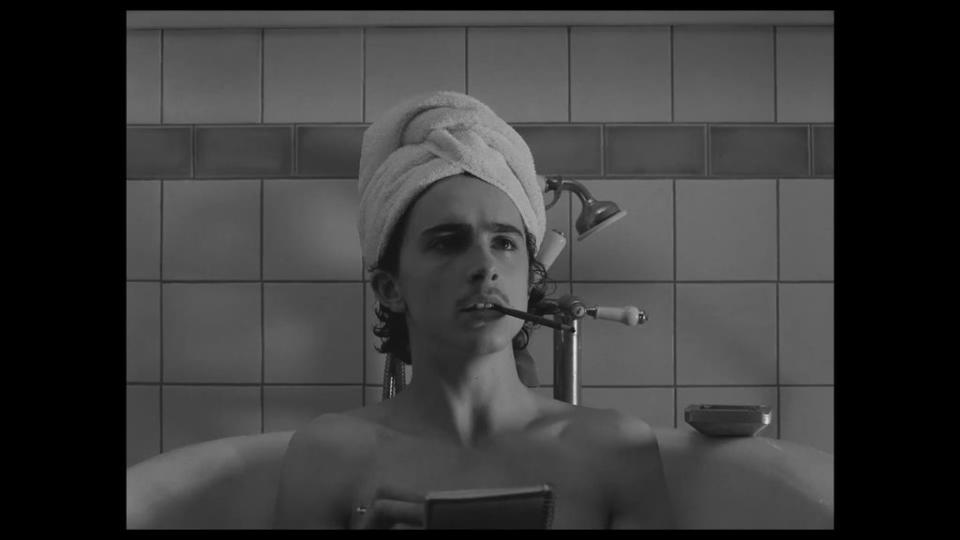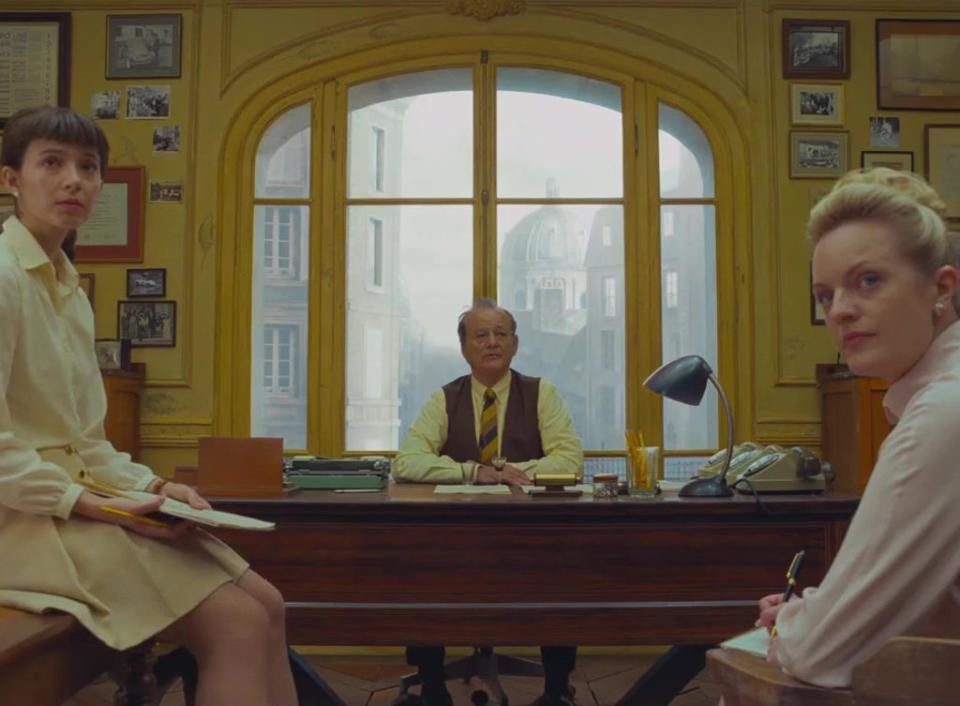The French Dispatch review: Wes Anderson’s ode to crumpled journos is a delight

Timothée Chalamet and Léa Seydoux are two of the hottest stars on the planet, and both appear in this comedy anthology from Wes Anderson. That said, the actors aren’t treated like VIPs. In the merry old land of Wes, egalité is key and cool always trumps hot.
The film’s about journalism. It starts in 1975, with the death of Kansas-born Arthur Howitzer Jr (Bill Murray; delish), the editor of an American magazine that’s been run, for years, from a French city called Ennui-sur-Blasé. And if you don’t find that joke funny, best to stop reading now.
Howitzer’s loyal team want to put together a last edition, one that sums up what made the Dispatch special. In effect, we get to experience four different articles, by four different journalists (played by Owen Wilson, Tilda Swinton, Frances McDormand and Jeffrey Wright).
Anderson has long been a fan of The New Yorker and The French Dispatch is basically his dream version of the magazine. Arthur is a hybrid of two legendary editors, Harold Ross and William Shawn, and is the kind of authority figure all writers dream of having (supportive, wise and willing to pay dubious expenses).

Brainy actors are sewn into the folds of the plot like pearls on an haute couture dress. Elisabeth Moss is one of Arthur’s many underlings. She may only get a few lines, but the minute you see her serenely witchy frown, you know you’re in good hands.
Wilson, as the beret-wearing Herbsaint Sazerac, struggles to make an impression in the first, super-short segment. Swinton, by contrast, is fab as J.K.L Berensen, the curator of the second instalment, “The Concrete Masterpiece”. Wafting around in a flowing gown, art critic Berensen resembles a topsy-turvy Margaret Thatcher. She may be mad, but by God, she’s pithy.
So much about this chunk of the film is satisfying. Benicio Del Toro is incarcerated and unstable Modernist genius Moses, who, in the presence of prison guard, Simone (Seydoux), moves his hands as daintily as Oliver Hardy. He can’t stop looking at Simone. The latter, like a stern farmer confronted by troublesome cows, shoos away his affection. Seydoux hasn’t been this funny since The Lobster.
Wright and Liev Schreiber are also on top form in “The Private Dining Room of the Police Commissioner”. For much of the section, the pair sit in a TV studio, discussing Ideas. Schreiber, as the Dick Cavett-style host, is delightfully pretentious, while Wright’s Roebuck Wright (clearly modelled on James Baldwin) manages to be both suave and anal-retentive.
In the story bound to attract the most attention, Chalamet is Zeffirelli, a left-bank student in 1968, who wears his heart on his skinny sleeves and writes innocently bad manifestos about the revolution that require brutal editing. Journalist Lucinda Krementz (Frances McDormand) is willing to reign in the youth’s purple prose. And that’s not all. Soon they’re making noisy love (they’re not showing off; Zeffirelli’s bed is on its last legs).

It’s impossible to get bored of Lucinda’s face. She doesn’t have eyebrows, she has wry-brows. Zeffirelli’s Einstein hair, too, is a source of wonder. But it’s kind of hard to give a fig about the riots.
Actually, in all four narratives, words trump action. When the characters go into Keystone cops mode - evading bullets/bottles/tear-gas - it’s tempting to zone out and focus on the intricate, brightly-coloured sets. Anderson’s dolls-house aesthetic is the gift that keeps on giving.
Howitzer has a sign in his office saying “Don’t cry”. Yet, at one point, he instinctively senses that something is missing from Roebuck’s piece and encourages the writer to re-insert a “sad” bit of dialogue. Which is all very delicious but also ironic, because so much of the movie feels like an attempt to keep emotion at bay. To cry or not to cry? Anderson can’t solve his own riddle.
By Anderson’s own standards, The French Dispatch is below par. Yet compared to the average film, it’s a winner. What’s not to like about a tender ode to crumpled writers? What’s not to love about zingers so zesty they’d surely make the ghosts of Harold Ross and William Shawn smile?
In cinemas now. 108 mins, 15
Read More
Sorry Daniel Craig, James Bond can never be a feminist
Léa Seydoux on the latest bond, parenthood and the pain of acting
In Pictures: Kate’s dress dazzles at premiere of Daniel Craig’s final Bond movie

 Yahoo Finance
Yahoo Finance 